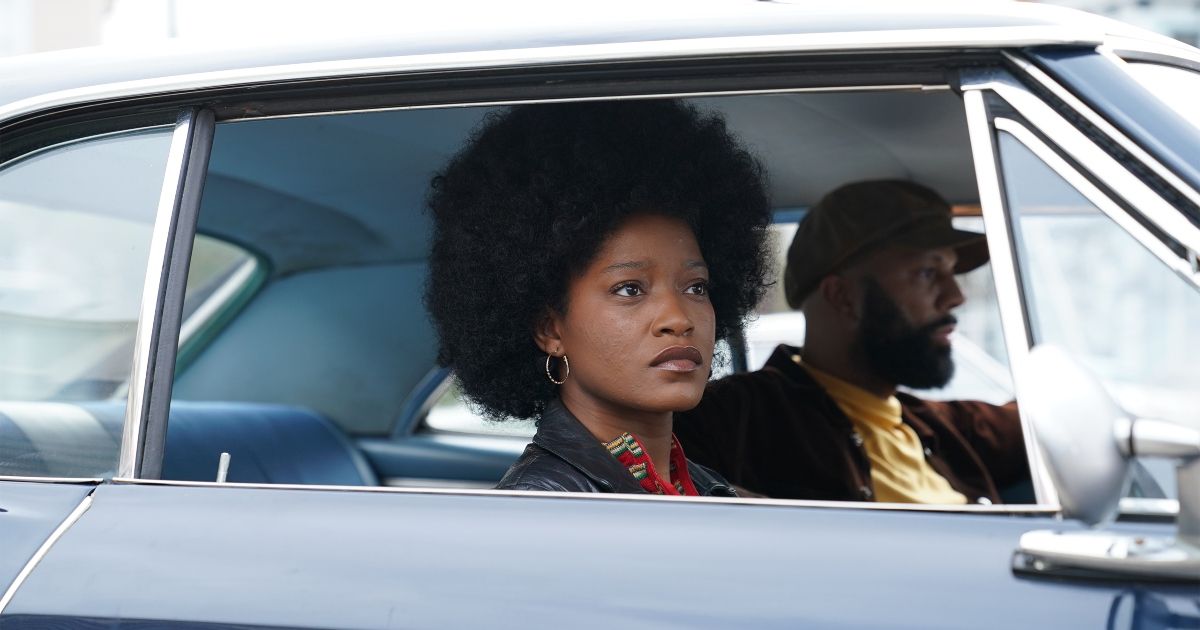When it comes to her directorial debut Alice, writer-director Krystin Ver Linden asks one thing from the audience: “Keep an open mind; looks are deceiving.” It’s a fair response to the equally fair impulse to categorize the film, upon first glance, as another movie about the enslavement of Black people — and, by extension, another movie about Black pain — throughout America’s history. Even its leading star Keke Palmer urges audiences to see deeper meaning in Alice. “It’s not trauma porn,” she tells PEOPLE. “It’s like, ‘This happened. Let’s show you how our people found hope.’ If a character like Alice was able to keep going, and she actually endured slavery, then what do you think that you could do? That, to me, is very powerful and important for my generation to see because we are at that breaking point in our own way.”
Whether it’s movies about politics or, more specifically, movies about civil rights, it’s almost impossible to remove contemporaneous social discourse and ideology from film. Indeed, cinema has long been both a mirror to and vessel for history. Alice is no different, especially because it is, in fact, based on the true story of Mae Miller, a Black woman who escapes enslavement in a 55-acre plantation in 1800s Georgia, only to discover that it’s actually 1973. But what Alice provides most of all, as Ver Linden says in our Zoom interview ahead of the film’s release, a story of hope: “It was so inspiring,” she says of the news articles that inspired her movie, “and I loved how empowering her story felt. You didn’t get a sense of her victimhood. [It was like] a survivor’s manual of how to not only overcome something but to become much better and stronger for it.”
In Alice, the eponymous character, played by Palmer, escapes from a plantation run by Paul Bennet (Jonny Lee Miller, Elementary), runs into Frank (Common, The Hate U Give), and discovers that she and the other enslaved people have been cut off from the world and consequently led to believe that life on the plantation is the only life available to them. Ver Linden’s movie is a triptych of sorts: the first part shows Georgia in the 1800s; the second, Alice’s coming into her own in 1973 Georgia, soaking up the history and iconography of her people (from Frank’s work with the Black Panthers to Diana Ross’ Rolling Stone Cover); and the third brings Alice’s two worlds together as she makes the decision to go back to the plantation and save the others she left behind.
On Casting Keke Palmer as Alice
Ver Linden was in the middle of writing the second draft of Alice‘s script around the time after George Floyd’s murder when people across America, and in many countries around the world, marched in protest against police brutality and anti-Black racism. Like many of us, Ver Linden turned to Instagram for live news and updates. One of the faces she saw — and, more importantly, one of the voices she heard — the most was Palmer’s. “I would see Keke on the frontlines. She was very empowering and strong,” says Ver Linden on when the idea of casting Palmer first came to her. “I was always an admirer of hers, anyway, because she’s not fake, she speaks her truth, so she always felt right as Alice, but [especially] when I saw her on the frontlines during the protests. If the Alice in my script had popped out, it would have been Keke.”
The power of one’s voice is something Ver Linden cherishes; indeed, it’s how she relates to Alice so deeply. “I struggled to find my voice growing up. I think that’s why I became so introverted and became a screenwriter — to get my voice out — and it was a process.” Ver Lindeen grew up in a predominantly white town, which left her “feeling different and feeling like you don’t fit in.” Film, specifically screenwriting, became “a coming-out moment [in the sense that], no, I can speak up for things and have an opinion and not feel worried about what someone’s going to think. That took time. When I was writing Alice, I really did feel like I was writing the girl that didn’t have a voice into the story, and it felt good to have that portion come out.”
On Quentin Tarantino Being Her Mentor

Ver Linden additionally credits acclaimed director Quentin Tarantino for guiding her towards finding her directorial voice. Having assisted during the production of both Django Unchained and Inglourious Basterds, she says, “You can’t help but be inspired to speak your truth. The stuff that he was working on was very empowering, so it gave me confidence as a teenager at the time to write about things that I believed in.”
“He always had screenwriting advice, and then when I transitioned into directing, he had this other toolkit to give me.” Of course, what surprised Ver Linden the most about Tarantino was his “beautiful naïve quality,” as she puts it. “I think he forgets who he is. When Django finished, and he was shopping around town, he was like, ‘I can’t believe they actually like it.’ I was like, do you not know who you are?”
Alice was shot not only in the middle of the pandemic and louder, more involved discourse around race and representation but also around the time of the 2020 American Presidential election, arguably the country’s most important election in recent times. When asked if she felt any sort of extra pressure to tell Mae Miller’s story (and the stories of others who experienced the same tragedies she did), Ver Linden says: “A gift Quentin gave me was [the advice to] follow your art, follow your creative passion. Being an artist, people are going to [either] really hate what you do, really love what you do, or kind of like what you do. You have to let go of everybody else’s opinion of who you are and what you have to say, and just follow the story that you believe and want to tell.”
Alice releases in theaters on March 18, 2022.
Read Next
About The Author
Stay connected with us on social media platform for instant update click here to join our Twitter, & Facebook
We are now on Telegram. Click here to join our channel (@TechiUpdate) and stay updated with the latest Technology headlines.
For all the latest Education News Click Here

